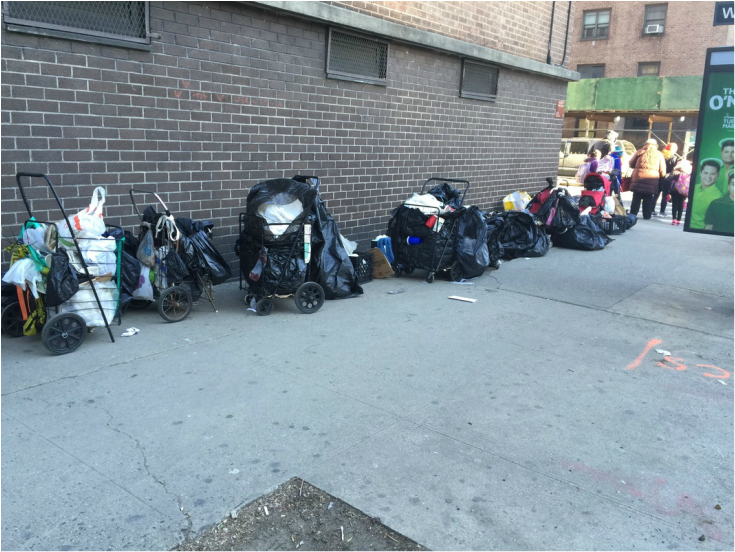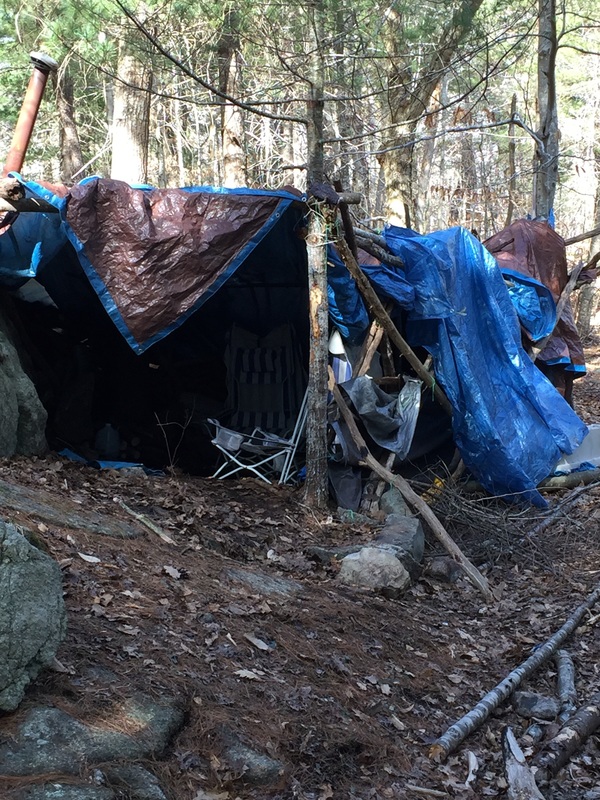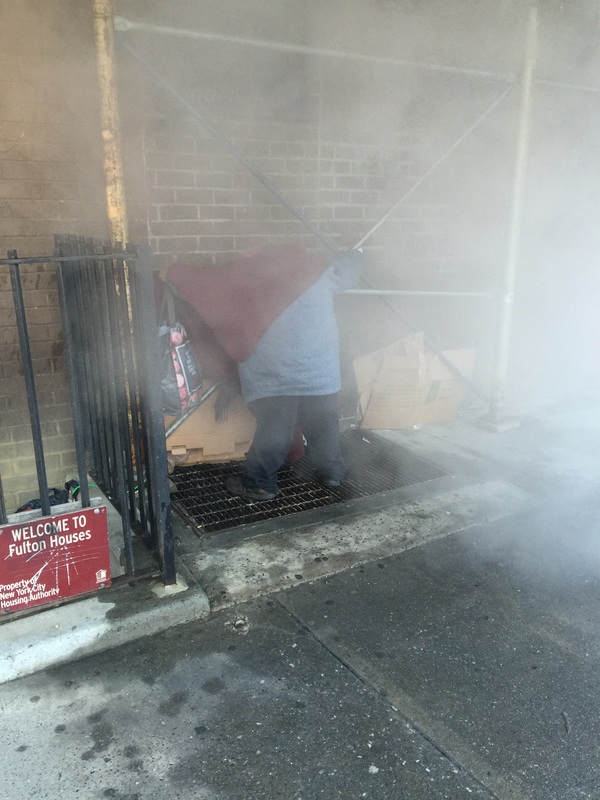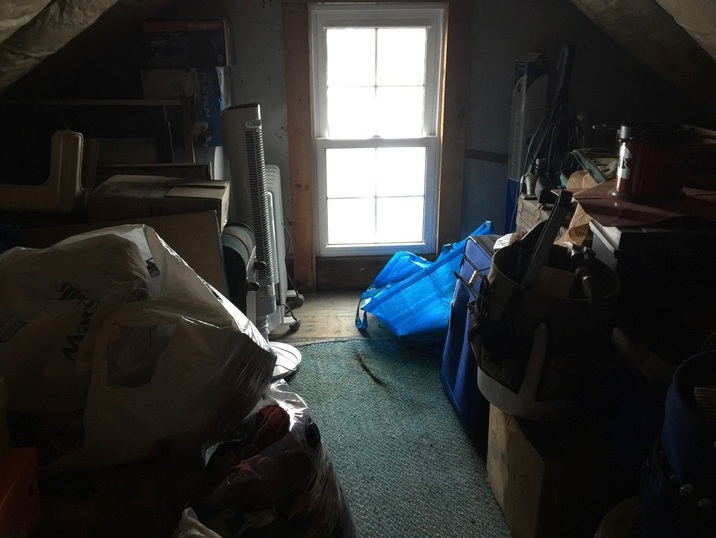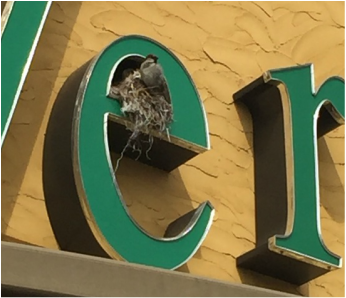When we lose a home, a spouse, a job, a prized belonging, we lose pieces of ourselves. What grows back is different. We are changed by loss.
I once got in my car to go food shopping. My daughter, two weeks old, was home with a friend. I hadn’t gone anywhere without her for the last ten months if you count gestation, which I did. I sat in my driveway, in front of the steering wheel, when the enormity of what was happening began to dawn on me.
I cannot drive. I cannot feel anything. Part of me is missing. My arms, already so accustomed to holding my baby, felt useless, weightless, without purpose. Yes, I inserted the key in the ignition, put the car in first gear and set off. Yes, I picked up milk and bread and whatever else was on the list. But I was harder after that. I had gone out on my own, walled up the hole in my gut, pushed through the heartbreak of separation with my warm, sweet baby whom I would have died for at any provocation. Maybe I needed to toughen up.
I once got in my car to go food shopping. My daughter, two weeks old, was home with a friend. I hadn’t gone anywhere without her for the last ten months if you count gestation, which I did. I sat in my driveway, in front of the steering wheel, when the enormity of what was happening began to dawn on me.
I cannot drive. I cannot feel anything. Part of me is missing. My arms, already so accustomed to holding my baby, felt useless, weightless, without purpose. Yes, I inserted the key in the ignition, put the car in first gear and set off. Yes, I picked up milk and bread and whatever else was on the list. But I was harder after that. I had gone out on my own, walled up the hole in my gut, pushed through the heartbreak of separation with my warm, sweet baby whom I would have died for at any provocation. Maybe I needed to toughen up.
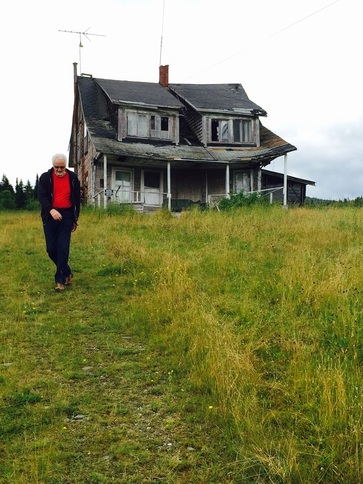
Because. A few months later I received an eviction notice from my landlord. My husband had run off with another woman and left my newborn and I without resources. Another loss, then. This time, a husband. I lacked money, food, electricity. He even took my car. I was, however, familiar with the feeling of material scarcity. I left my home in Santa Barbara when I turned seventeen with only a suitcase. I packed a few books and two record albums but no clothes. What was I thinking? Well, no matter. I found out how to start over from scratch.
I lost a home, a husband, a certain dignity all with one phone call when the stranger told me that my husband was in bed with his wife. His bed. His wife. Things rapidly fell away after that. Electricity. Apartment. A butter dish. Sets of sheets and towels. A camera. My humanity suffered when I abandoned the things that had, I realized, buffered me from the hostile elements. A wine glass, a wash cloth, a fountain pen are civilizing agents. I began to hold on to a few things after that.
Sometimes I lose track of myself. I’ve lived complete lives West, South and East. Each time I moved, I started over. I let myself be defined by the moment, the terrain, the neighbors — I am dependent on context in large part because I carried nothing forward, no keepsake to connect my histories. Whereas my daughter would be lost without Lambie, who’s 40 now and goes on all of her major moves and even some overnights. He’s a flattened version of his former self, but he’s the vessel in which the continuity of my child’s life is held secure.
I lost a home, a husband, a certain dignity all with one phone call when the stranger told me that my husband was in bed with his wife. His bed. His wife. Things rapidly fell away after that. Electricity. Apartment. A butter dish. Sets of sheets and towels. A camera. My humanity suffered when I abandoned the things that had, I realized, buffered me from the hostile elements. A wine glass, a wash cloth, a fountain pen are civilizing agents. I began to hold on to a few things after that.
Sometimes I lose track of myself. I’ve lived complete lives West, South and East. Each time I moved, I started over. I let myself be defined by the moment, the terrain, the neighbors — I am dependent on context in large part because I carried nothing forward, no keepsake to connect my histories. Whereas my daughter would be lost without Lambie, who’s 40 now and goes on all of her major moves and even some overnights. He’s a flattened version of his former self, but he’s the vessel in which the continuity of my child’s life is held secure.
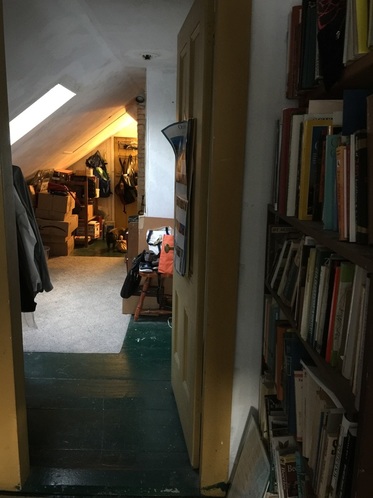
Things connect us to ourselves and others, yet we need very little of what we possess. Aren’t we all hoarders to some degree? Aren’t we all vulnerable to the seduction of things? Lama Marut, a Tibetan Buddhist, says that we have too many things that distract us, compromise our financial stability and promise a sense of satisfaction we never really experience. Things are the consumers’ opiates and we must not indulge.
Yet some things — stuffed animals, a mug, a photograph, a certain T-shirt — have the potential to make me more human. A month ago, my sister on the West Coast whom I rarely see, gave me a valuable ring someone had designed for her decades earlier. She wanted me to have something that she loved. Now when I look at the ring, encrusted with diamonds and heavy with gold, I imagine her at the Hollywood parties she delighted in dressing up for. The ring is a huge and ostentatious piece of bling. It stays in a drawer but it opens my heart to her.
Because of the losses in my life, I am drawn to the homeless. It’s as if little separates us. Circumstances verify that I am a pawn of fate and “There but for God go I” is both a taunt and a gift. Humility is my centering agent.
Yet some things — stuffed animals, a mug, a photograph, a certain T-shirt — have the potential to make me more human. A month ago, my sister on the West Coast whom I rarely see, gave me a valuable ring someone had designed for her decades earlier. She wanted me to have something that she loved. Now when I look at the ring, encrusted with diamonds and heavy with gold, I imagine her at the Hollywood parties she delighted in dressing up for. The ring is a huge and ostentatious piece of bling. It stays in a drawer but it opens my heart to her.
Because of the losses in my life, I am drawn to the homeless. It’s as if little separates us. Circumstances verify that I am a pawn of fate and “There but for God go I” is both a taunt and a gift. Humility is my centering agent.
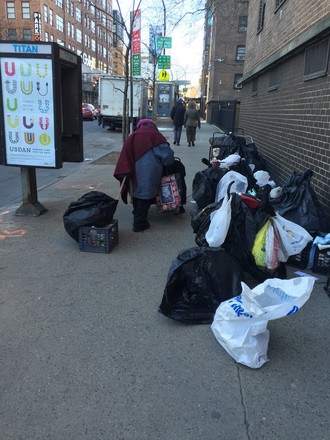
Though I understand the suddenness and severity of loss, I gravitate toward scenarios that deepen this understanding. I once decided to write a feature-length article about a Manchester, N.H., man who slipped on the ice while stepping outside to pick up his Sunday Globe. He shattered both ankles. Because he was incapacitated for several months, he lost his job, his house and eventually his family. Once a well-to-do stockbroker, he wound up homeless and alcoholic. “One morning I woke up in a gutter in Manchester,” he said, “and that’s when I decided to ask for help.” He insisted it really was a gutter and that he had no idea how he got there.
I’ve never spent a night alone on a street. I’m not and never have been homeless. And though I believe, correctly or not, that I’ve come close, it’s not the same. But events changed me and I am homeless in my heart.
I see homeless people everywhere I turn. I’m drawn to them but, also, many homeless people live where I live. I learned that Massachusetts and New York are among the five states with the greatest homeless populations. I live part time in both of these states because of work and a new marriage.
I’ve never spent a night alone on a street. I’m not and never have been homeless. And though I believe, correctly or not, that I’ve come close, it’s not the same. But events changed me and I am homeless in my heart.
I see homeless people everywhere I turn. I’m drawn to them but, also, many homeless people live where I live. I learned that Massachusetts and New York are among the five states with the greatest homeless populations. I live part time in both of these states because of work and a new marriage.
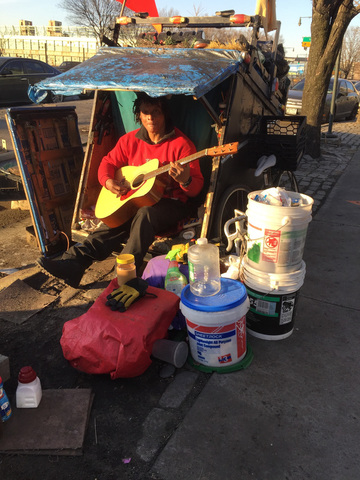
I also discovered that the highest concentration of homeless is in California, where I am from and where I recently spent time with my sister. The homeless there seem younger and healthier than they are in Massachusetts and New York. The young homeless have dogs and skateboards and guitars and they are often nomadic. Many are emboldened and have the wherewithal to approach and ask for food. A young man stepped up to me as I was entering a drugstore in Van Nuys and asked me if I would by him a half gallon of milk. “For cereal,” he said. Another young man in Venice asked me for the hamburger I was eating.
I am more of a mark than most. There’s something about me, some hesitation, some tell about my defenseless aspects, some destabilizing empathy. I am always imagining people’s plights. A tall man zoomed in on me when I was walking along 14th Street, near my husband’s apartment. The sidewalk was jammed with people but it was me he spotted, me he wanted. I saw it coming and braced for it. When he got to me, he dug his hands into my hair and rubbed it and ruffled it, shoving me backward, laughing, really getting into it. I was flabbergasted more than alarmed. Why was he so fixated on my hair? Finally I pushed him hard and got away.
I am more of a mark than most. There’s something about me, some hesitation, some tell about my defenseless aspects, some destabilizing empathy. I am always imagining people’s plights. A tall man zoomed in on me when I was walking along 14th Street, near my husband’s apartment. The sidewalk was jammed with people but it was me he spotted, me he wanted. I saw it coming and braced for it. When he got to me, he dug his hands into my hair and rubbed it and ruffled it, shoving me backward, laughing, really getting into it. I was flabbergasted more than alarmed. Why was he so fixated on my hair? Finally I pushed him hard and got away.
In New York City the homeless have neighborhoods. A man in a wheelchair on our block has one leg and no belongings other than the wheelchair. He deals in cash and he specializes in agility. My husband has cash ready to hand over every time we pass by. This man is spirited. He wheels up to us in a flash, confident of the exchange because he trusts the history of our transactions.
I am impressed by the homeless man at LaGuardia Airport. He pulls a deflated carry-on suitcase with a broken, half-closed zipper. He thinks he has us fooled, that we see him as a fellow traveler. So far, he’s right. He maintains a little sleeping stall behind a tall display of tourism brochures, an apt cubby for this wanderer in the netherworld of lost souls.
Two homeless teenagers sit on a blanket near the corner of 23rd Street and Sixth Avenue. They have a pit bull, a water dish, a sign that says, We are hungry and can’t find work. The homeless with signs often cast their eyes downward to communicate that they are spent, dejected, at their wit’s end. I think of these as set pieces, or installations, some more resonant and affecting than others. The teenagers barely notice the clang of change as it drops into the tin can.
I am impressed by the homeless man at LaGuardia Airport. He pulls a deflated carry-on suitcase with a broken, half-closed zipper. He thinks he has us fooled, that we see him as a fellow traveler. So far, he’s right. He maintains a little sleeping stall behind a tall display of tourism brochures, an apt cubby for this wanderer in the netherworld of lost souls.
Two homeless teenagers sit on a blanket near the corner of 23rd Street and Sixth Avenue. They have a pit bull, a water dish, a sign that says, We are hungry and can’t find work. The homeless with signs often cast their eyes downward to communicate that they are spent, dejected, at their wit’s end. I think of these as set pieces, or installations, some more resonant and affecting than others. The teenagers barely notice the clang of change as it drops into the tin can.
Some people refuse to be homeless, even when their home is gone. They carry their homes with them. For several weeks a car with deflated wheels and packed so tight you couldn’t see inside escaped the ubiquitous tow trucks. Deep in South Woods, on Cape Ann, Massachusetts where I now own a home, my friends and I quietly approach the pieced-together lean-to that has an actual smokestack, an Adirondack chair and, most fascinating, a busted mirror nailed to a tree. It also has a secret room. I whisper to my friend: I think somebody’s in there now.
The nomadic woman on Ninth Avenue in Chelsea pulls a number of overloaded shopping carts, one by one, from block to block, forevermore. It is horrible, hard, ceaseless work. She stutter-walks, bent nearly in two with some malady, barely able to look up. I encounter her early one morning spread eagle in front of a laundry vent on the side of a housing project. It is 14 degrees out and she is warming up. To do so she must risk turning her back on her precious belongings.
The nomadic woman on Ninth Avenue in Chelsea pulls a number of overloaded shopping carts, one by one, from block to block, forevermore. It is horrible, hard, ceaseless work. She stutter-walks, bent nearly in two with some malady, barely able to look up. I encounter her early one morning spread eagle in front of a laundry vent on the side of a housing project. It is 14 degrees out and she is warming up. To do so she must risk turning her back on her precious belongings.
We who have been dislodged in some deeply emotional way sometimes fill up that loss with stuff. Things give our lives context, purpose and something to hang on to. Things don’t have to be valuable. I have beautiful pens and paper. But I also have an attic in possession of small treasures that link me back a little ways, at last, and position me for what’s yet to come.
There’s a tiny room in my attic we call the horrible room because of the extreme temperatures and all the 19th-century nails, thick and squat, protruding from old support beams. This little space is my shopping cart is my platform from which I feel grounded in my borderline territory somewhere between normalness and homeless.
There’s a tiny room in my attic we call the horrible room because of the extreme temperatures and all the 19th-century nails, thick and squat, protruding from old support beams. This little space is my shopping cart is my platform from which I feel grounded in my borderline territory somewhere between normalness and homeless.
I have things therefore I was therefore I still must be. My favorite thing: A book my daughter wrote when she was four: Women and Toys. Clearly this child came from me, the author, the book reviewer, the journalist, the bookstore trustee. The world makes sense because of my daughter’s handmade book. I stand in the horrible room and take inventory: Sleeping bag. Cat carrier. Tax returns. A past lover’s texts on Zen Buddhism. I am comforted by the smell of dust, the decomposition of my things sinking into my history, mingling with my daughter’s stuff and the past owners’ leave-behinds and a few tail feathers from that awful time the kitties got hold of a sparrow.
The best attics are generational. They establish a family’s continuity over decades. What you don’t remember about who you are and where you came from is up there, a touchstone to identity.
If something happens that blindsides you, if, after a Sunday afternoon nap you awake and feel a bit off kilter, if you’ve just turned 50 and, after too much cake and beer, you start to question your worth as a human being, just climb the stairs. Open one of those black trash bags in your shopping cart. Sneak into your secret room in South Woods. You’re lost but then you’re found.
The best attics are generational. They establish a family’s continuity over decades. What you don’t remember about who you are and where you came from is up there, a touchstone to identity.
If something happens that blindsides you, if, after a Sunday afternoon nap you awake and feel a bit off kilter, if you’ve just turned 50 and, after too much cake and beer, you start to question your worth as a human being, just climb the stairs. Open one of those black trash bags in your shopping cart. Sneak into your secret room in South Woods. You’re lost but then you’re found.
All photos by the author.
Header art by T. Guzzio. Original photo via the San Francisco Homeless Resource.
Header art by T. Guzzio. Original photo via the San Francisco Homeless Resource.
CONNECT WITH RAE:
|
Rae Padilla Francoeur published Free Fall: A Late-in-Life Love Affair with Seal Press. She publishes fiction and nonfiction, and works as a journalist and book reviewer. Her weekly book reviews run in GateHouse Media papers around the country. Rae is creative director in her arts/tourism marketing business New Arts Collaborative. She was creative services director at the Peabody Essex Museum and editorial manager at the Museum of Fine Arts, Boston. She started her writing career as a journalist. Later she managed several magazines and the Sunday Portsmouth Herald. Learn more about Rae and her work at her blog, and at her website. Rae splits her time between Rockport, Massachusetts and Manhattan.
|
ADD YOUR VOICE:
ABOUT COMMENTS:
At Prodigal's Chair, thoughtful, honest interaction with our readers is important to our site's success. That's why we use Disqus as our comment / moderation system. Yes, you will need to login to leave a comment - with either your existing Facebook, Twitter, or Google+ account - or you can create your own free Disqus account. We do this for a couple of reasons: 1) to discourage trolling, and 2) to discourage spamming. Please note that Disqus will never post anything to your social network accounts unless you authorize it to do so. Finally, if you prefer you can always email comments directly to us by clicking here.

